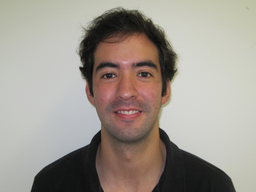PhD Defense: Fernando Calderon
Location
Physics : 401
Date & Time
November 21, 2016, 1:30 pm – 3:30 pm
Description
ADVISOR: Dr. Jason Kestner
TITLE: Dynamically correcting two-qubit gates against any systematic logical error
ABSTRACT: The reliability of quantum information processing depends on the ability to deal with noise and error in an efficient way. A significant source of error in many settings is coherent, systematic gate error. This dissertation introduces a set of composite pulse sequences that generate maximally entangling gates and correct all systematic errors within the logical subspace to arbitrary order. These sequences are applicable for any two-qubit interaction Hamiltonian, and make no assumptions about the underlying noise mechanism except that it is constant on the timescale of the operation. The prime use for our results will be in cases where one has limited knowledge of the underlying physical noise and control mechanisms, highly constrained control, or both. In particular, we apply these composite pulse sequences to the quantum system formed by two capacitively coupled singlet-triplet qubits, which is characterized by having constrained control and noise sources that are low frequency and of a non-Markovian nature.
TITLE: Dynamically correcting two-qubit gates against any systematic logical error
ABSTRACT: The reliability of quantum information processing depends on the ability to deal with noise and error in an efficient way. A significant source of error in many settings is coherent, systematic gate error. This dissertation introduces a set of composite pulse sequences that generate maximally entangling gates and correct all systematic errors within the logical subspace to arbitrary order. These sequences are applicable for any two-qubit interaction Hamiltonian, and make no assumptions about the underlying noise mechanism except that it is constant on the timescale of the operation. The prime use for our results will be in cases where one has limited knowledge of the underlying physical noise and control mechanisms, highly constrained control, or both. In particular, we apply these composite pulse sequences to the quantum system formed by two capacitively coupled singlet-triplet qubits, which is characterized by having constrained control and noise sources that are low frequency and of a non-Markovian nature.
